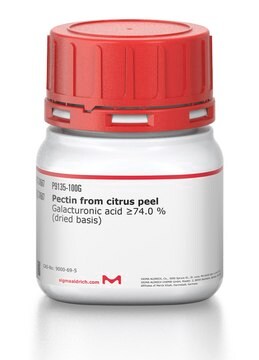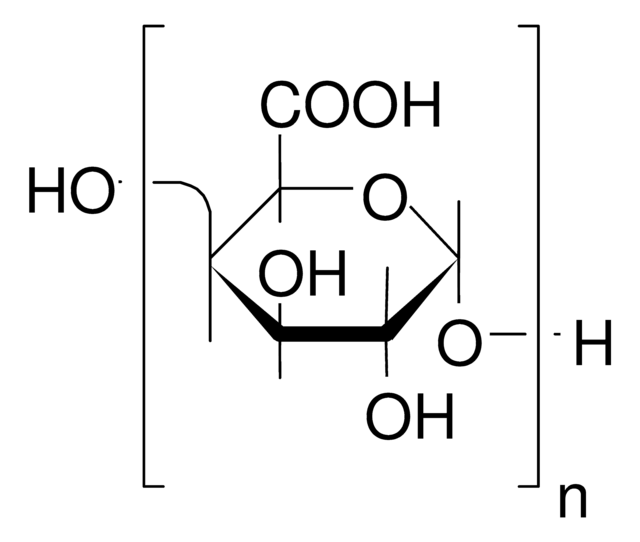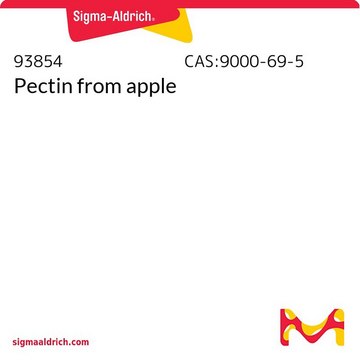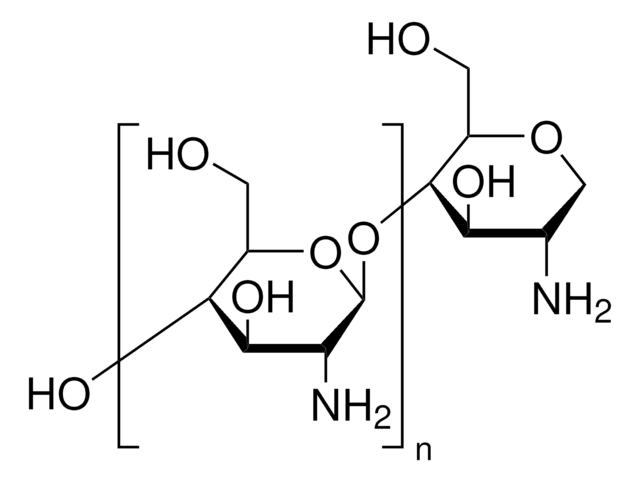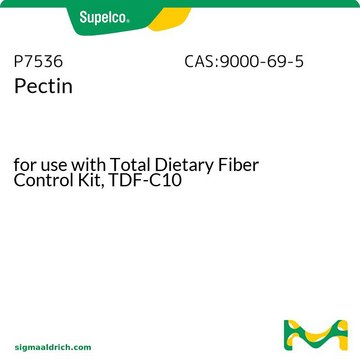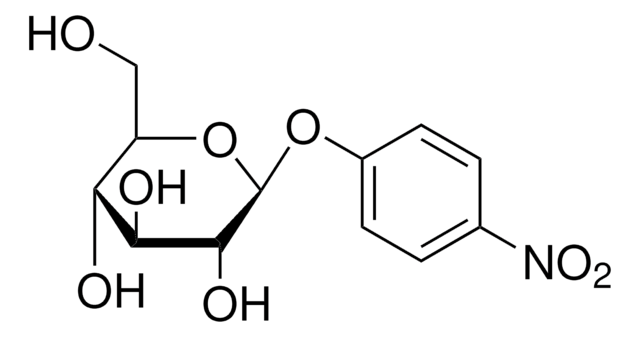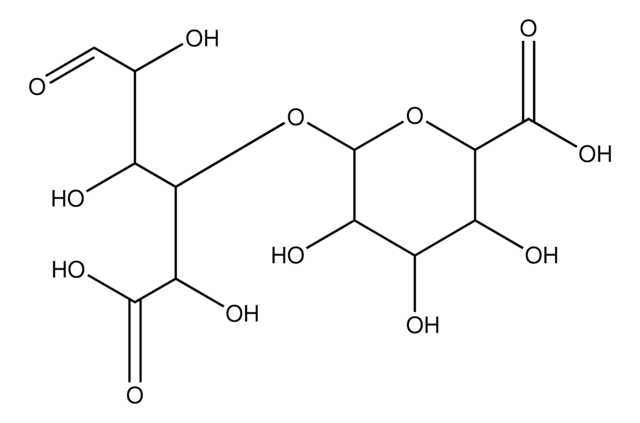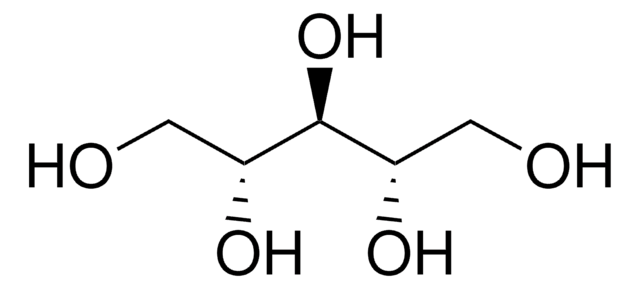P3850
Polygalacturonic acid sodium salt
from citrus fruit, ≥75% (titration)
Synonim(y):
Polyanhydrogalacturonic acid, Sodium polypectate
Zaloguj sięWyświetlanie cen organizacyjnych i kontraktowych
About This Item
Polecane produkty
pochodzenie biologiczne
citrus fruit
Próba
≥75% (titration)
Formularz
powder
kolor
white to light brown
rozpuszczalność
water: 10 mg/mL, hazy to turbid, faintly yellow to yellow
ślady kationów
Na: 6.5-10.5% (ICP)
temp. przechowywania
room temp
Szukasz podobnych produktów? Odwiedź Przewodnik dotyczący porównywania produktów
Opis ogólny
Sodium polypectate sequesters metal ions and, in fungal cultures, it is used as a carbon source and inducer of polygalacturonases.
Zastosowanie
Sodium polypectate can be used to sequester metal ions. In fungal cultures, it is used as a carbon source and inducer of polygalacturonases.Polygalacturonic acid has been used in a study to assess an alkaline-active and alkali-stable pectate lyase from Streptomyces sp. S27 with potential in the textile industry. It has also been used in a study that investigated optimization of production and reaction conditions of polygalacturonase from Byssochlamys fulva.
Działania biochem./fizjol.
In land plants, polygalacturonic acids are major components of cell wall polysaccharides (pectins). Bound polygalacturonase-inhibiting peptides (PGIP) protect pectin from degradation by fungal polygalacturonases.
Inne uwagi
To gain a comprehensive understanding of our extensive range of Polysaccharides for your research, we encourage you to visit our Carbohydrates Category page.
Ta strona może zawierać tekst przetłumaczony maszynowo.
Kod klasy składowania
11 - Combustible Solids
Klasa zagrożenia wodnego (WGK)
WGK 3
Temperatura zapłonu (°F)
Not applicable
Temperatura zapłonu (°C)
Not applicable
Środki ochrony indywidualnej
Eyeshields, Gloves, type N95 (US)
Wybierz jedną z najnowszych wersji:
Masz już ten produkt?
Dokumenty związane z niedawno zakupionymi produktami zostały zamieszczone w Bibliotece dokumentów.
Klienci oglądali również te produkty
Optimization of production and reaction conditions of polygalacturonase from Byssochlamys fulva
Gupta, R. and K. Acta
Microbiology and Immunology, 58, 339-349 (2011)
Ana Paula de F C Vanzela et al.
Microbiological research, 157(3), 239-247 (2002-10-26)
The effects of glucose and of a pectic substrate in the duplication cycle, spore polarization and septation of Aspergillus nidulans were tested in poor and rich media. Growth on poor conditions and on sodium polypectate slowed nuclear duplication and reduced
M D Huertas-González et al.
Current genetics, 35(1), 36-40 (1999-02-18)
A pectate lyase (PL1) from the tomato vascular wilt pathogen Fusarium oxysporum f.sp. lycopersici was previously characterized, and evidence was obtained for its production in planta. The gene encoding PL1 was isolated from a genomic library of F. oxysporum f.
Johanna Nykyri et al.
PloS one, 8(9), e73718-e73718 (2013-09-17)
In this study, we characterized a putative Flp/Tad pilus-encoding gene cluster, and we examined its regulation at the transcriptional level and its role in the virulence of potato pathogenic enterobacteria of the genus Pectobacterium. The Flp/Tad pilus-encoding gene clusters in
M A Chellegatti et al.
Journal of basic microbiology, 40(5-6), 319-326 (2001-02-24)
Penicillium frequentans synthesized eleven polygalacturonases and three pectinesterases when grown in the presence of pectin, sodium polypectate or monogalacturonic acid. When glucose was the sole carbohydrate source in the medium two of these polygalacturonases and one pectinesterase were produced. The
Nasz zespół naukowców ma doświadczenie we wszystkich obszarach badań, w tym w naukach przyrodniczych, materiałoznawstwie, syntezie chemicznej, chromatografii, analityce i wielu innych dziedzinach.
Skontaktuj się z zespołem ds. pomocy technicznej